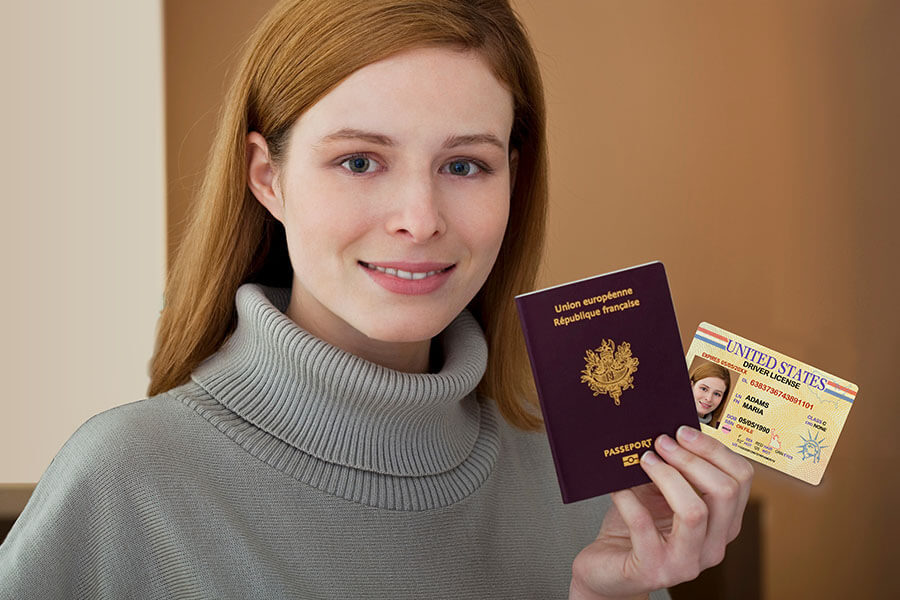
Updated 9-18-23. Properly verifying the identity of signers is one of a Notary’s core responsibilities. There are three primary methods of identifying signers, each with its own set of guidelines, procedures and challenges:
1. Identification Cards
2. Personal Knowledge
3. Credible Identifying Witnesses
Method 1: Identification cards
Perhaps the most common way to identify signers is by using identification cards. But with hundreds of different types of government-issued IDs out there, and millions of U.S. residents lacking proper IDs, this method is not always as straightforward as it seems.
Some states, including California and Florida, provide specific lists of acceptable IDs. Others provide a list of required ID elements, allowing Notaries to accept any ID that contains the required elements. For example, Texas requires an ID to be current, issued by the federal government or any state government and contain a photograph and signature. Texas also allows Notaries to accept a current foreign passport as ID, but only for notarizations related to residential real estate transactions.
Other states have neither a list of specific IDs nor required ID elements, so it’s up to the Notary to decide if an ID is acceptable. In such cases, the NNA recommends following The Notary Public Code of Professional Responsibility (Standard III-B-1) when requesting identification.
Method 2: Personal knowledge
Relying on “personal knowledge” means that you know the signer personally and are willing to vouch for his or her identity.
All states except California allow Notaries to identify signers through personal knowledge.
Personal knowledge guidelines vary from state to state. Texas permits notarizing for an individual “personally known" to the Notary but provides no additional details. Florida defines personal knowledge as "having an acquaintance, derived from association with the individual, which establishes the individual’s identity with at least a reasonable certainty.”
When you vouch for the signer’s identity, you should be certain. There could be serious consequences — including the potential for criminal penalties — if you are wrong.
Many states have laws as to what constitutes personal knowledge. A common rule, for example, says that the Notary should know the signer "over a period of time." In other words, you would not use personal knowledge to verify the identity of a casual acquaintance.
Method 3: Credible identifying witnesses
Many states allow you to use one or two credible identifying witnesses to identify a signer. With this method, a third party must know the signer and be willing to verify their identity, basically acting as a “human ID card” for the signer.
Some states require the identifying witness to know both the signer and the Notary. Other states do not have that requirement as long as identifying witnesses present satisfactory proof of their identity, such as an acceptable ID card (Texas changed its laws in 2018 to allow the use of credible identifying witnesses who can provide qualifying ID to the Notary in addition to credible witnesses personally known to the Notary).
Always check your state’s laws before accepting credible witnesses as proof of identity. Some states do not permit the use of credible identifying witnesses for notarizations. If your state allows credible witnesses, make sure to follow all your state’s requirements, such as administering an oath or affirmation for the witness.
Notaries in all states are legally responsible for verifying the identity of their signers for certain notarial acts, and they can risk civil, criminal and administrative liability if they fail to properly do so. If you have any questions with regards to identifying signers, you can contact your Secretary of State’s office (or other Notary commissioning agency), or reach out to the NNA Hotline for immediate assistance.


Related Articles:
Five tips for authenticating a signer's ID for notarization